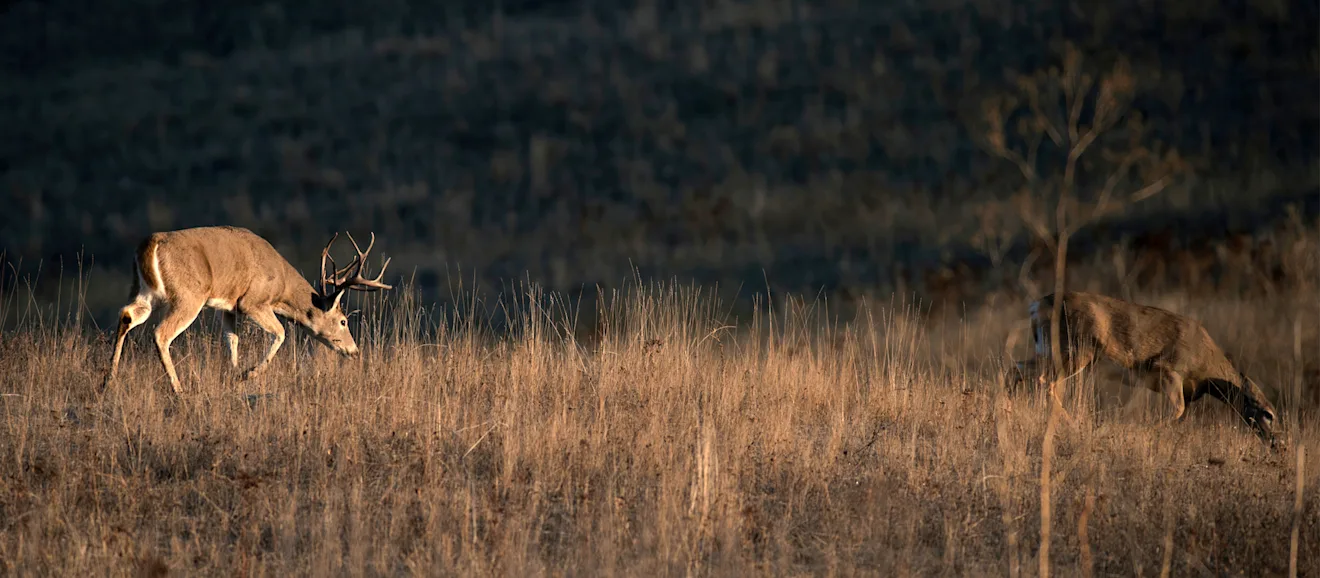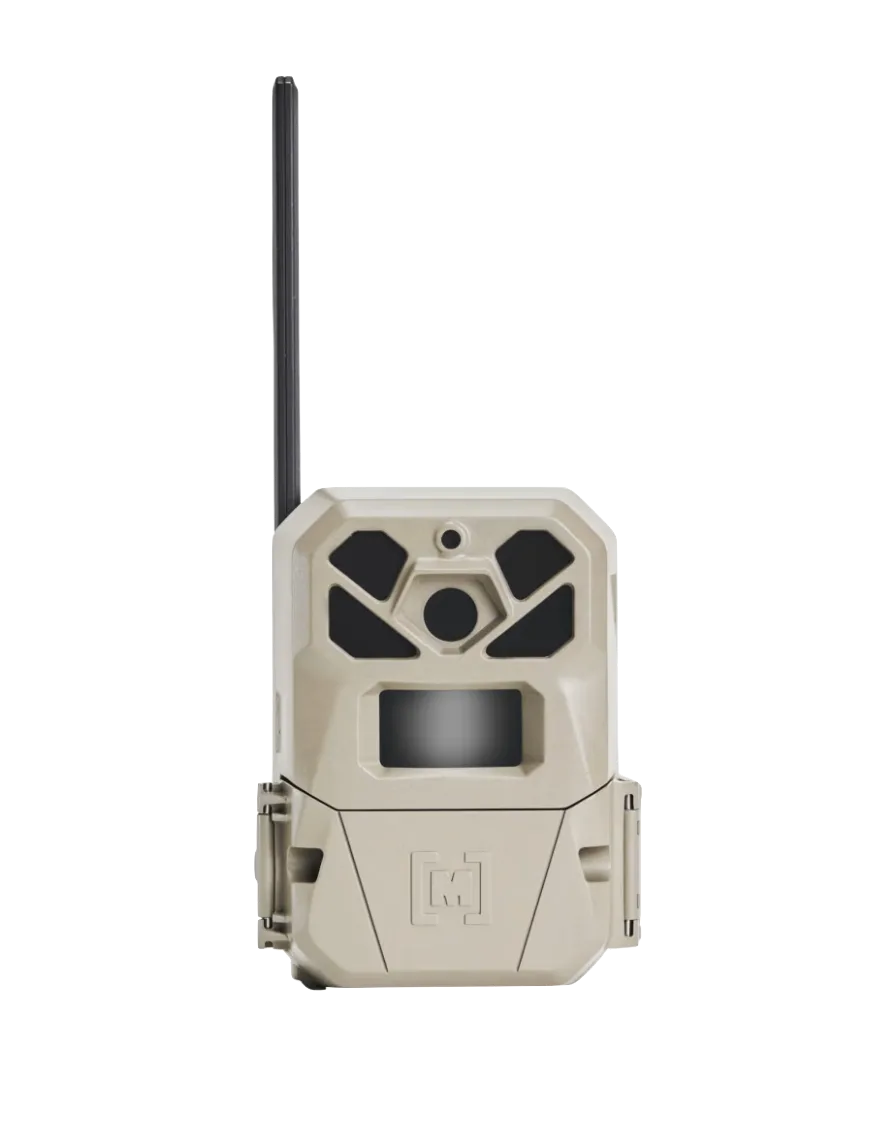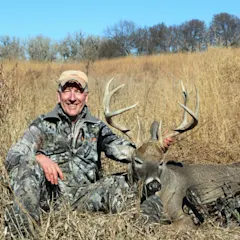We may earn revenue from the products available on this page and participate in affiliate programs. Learn more
In a matter of days, the number of whitetail does coming into estrous will reach a peak, and when it does, our hunting prospects will dip for a bit as bucks become too busy tending does to walk past our stands. But before that happens—in the short window right before peak breeding—it's magic time for hunters. And that's where we are right now.
Throughout much of whitetail range, this Friday, November 8th, should coincide perfectly with that brief period before lockdown when virtually every buck in the herd is in full-on go mode, bombing through doe feeding and bedding areas, noses to the ground, determined to find mates. Which is why you need to spend as much time in the whitetail woods on Friday as you can handle. Patience, or the lack of it, shouldn't be a problem. You'll either see too much action to get bored—or you'll be in your truck heading for home in no time, with a buck in the back.
Related: The 7 Best Days of the 2024 Whitetail Rut
Rut Stage: Chasing/Early Breeding

The most important thing to understand about this part of the rut is that things change quickly. It’s easy to get stuck in the mode of interpreting buck sign and hunting over the rubs and scrapes during this period. Nothing wrong with that a week or so ago, but it can be the kiss of death right now. Don’t get me wrong; buck sign, especially when it’s fresh, should always grab our attention and factor into our hunting plans. But don't forget that right now, when several does have popped and the testosterone levels in bucks are spiking, bucks are way more concerned with finding a mate and checking her out than they are in laying down or checking sign. They’ll definitely get back to rubbing and scraping, but on this Best Day of the Rut, they’ll be hyper-focused on running down any female deer they see, whether she’s ready to breed or not. Your hunting plans need to capitalize on that drive, so let’s look at a couple.
November 8 Morning Hunt Plan: Set Up on the Buck Hub
It’s tough to go wrong by sitting right in a known doe bedding area right now. Bucks are going to be trolling them from the first crack of light and all through the day. But what can be even better is sitting in a spot that connects two or more bedding areas. It helps if you have a long history with a property and already know where does bed, but you can also pull it off by studying satellite mapping apps on your phone. In my hunting area, lower-lying ridge ends with good brushy cover are favorite doe bedding spots, so I look for a hub where two or more of these ridge ends or spur ridge connect at a common spot.
I call these areas a “turkey foot,” as that’s what they look like when viewed on satellite imagery or a topo map. In the big woods, I’m looking for beaver ponds and swamp or clearcut edges that I know will host does laying up for the day. Then I search for ridges, brushy creek corridors, or other funnels that connect these covers, knowing that they will focus deer movement as bucks troll bedding spots throughout the day. If I’m up for an all-day sit and the action is especially good, I may stick in the stand from dawn through dark. Otherwise, moving to a different afternoon spot can be highly effective now, so let’s look at one.
November 8 Evening Hunt Plan: Hunt the Buffer Zone
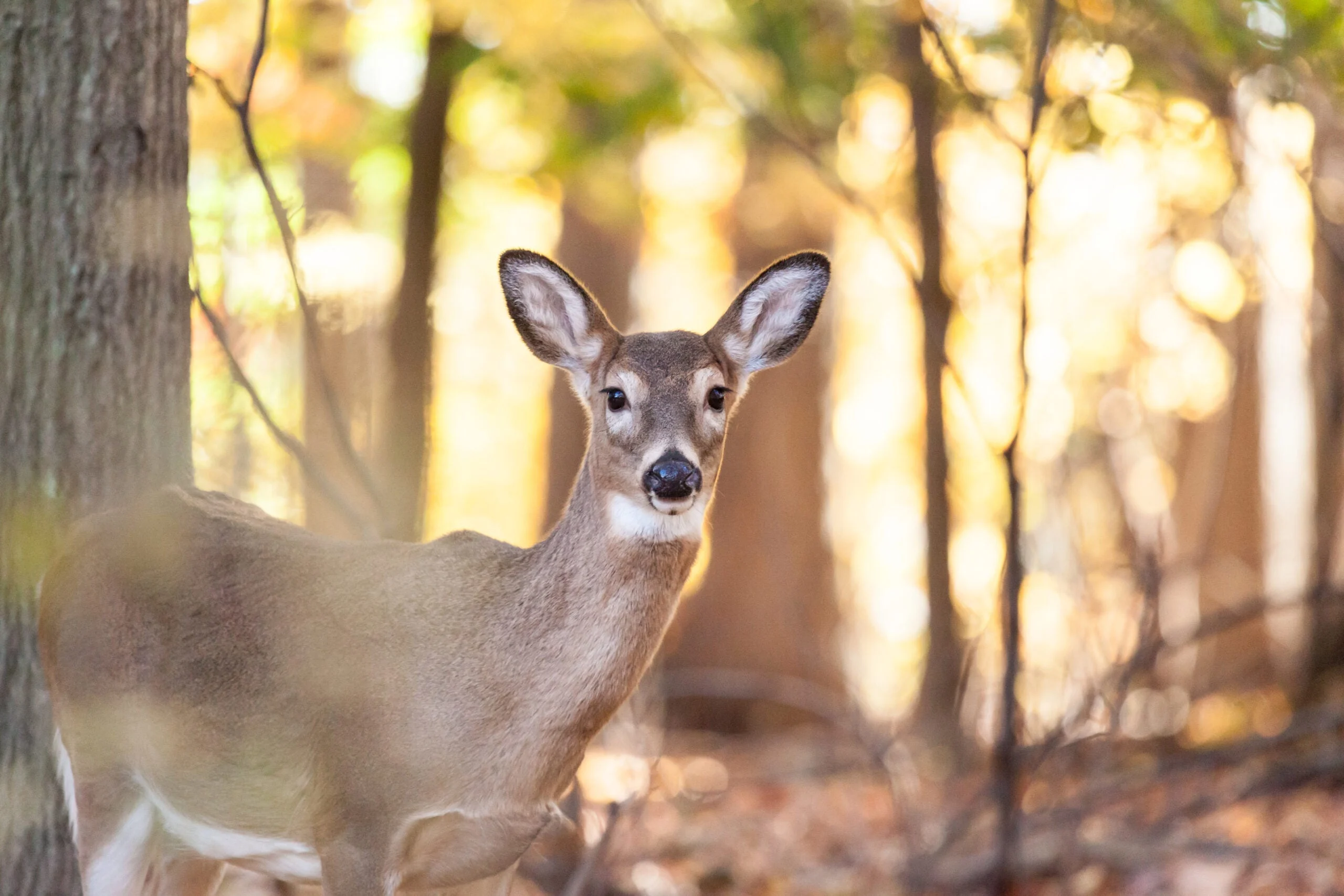
Bucks have been harassing does at food sources—especially ag fields and food plots, where visibility is good and girls can be spotted from a distance—for weeks, and does are getting pretty sick of the routine. Most every time they stick their neck out to grab a bite, a buck appears to dog them and ruin dinner. Consequently, does start getting pretty leery about showing up at the salad bar and can be as cautious as an old buck hanging back to check things out before sliding in to the groceries.
I like to counter their caution by setting up in a buffer zone just off the food source now. Similar to a staging area used by bucks, these buffer zones are typically marked by trails and tracks paralleling the food source, spots where a doe can hang out and scope the situation before committing to dinner. Meanwhile, cruising bucks will run these paralleling trails to quickly check a doe feeding area without exposing themselves in the open. These trailsmay be marked by scrapes and rubs, but they may not be super-fresh, for reasons listed above. Still, they indicate spots where deer like to stage up and are used by both does and bucks on the prowl. I like to wiggle into these areas mid-afternoon and sit until dark, and I keep a grunt tube and doe bleat handy so I can call to any buck cruising past.
Gear Tip: Get More Cams Out Now
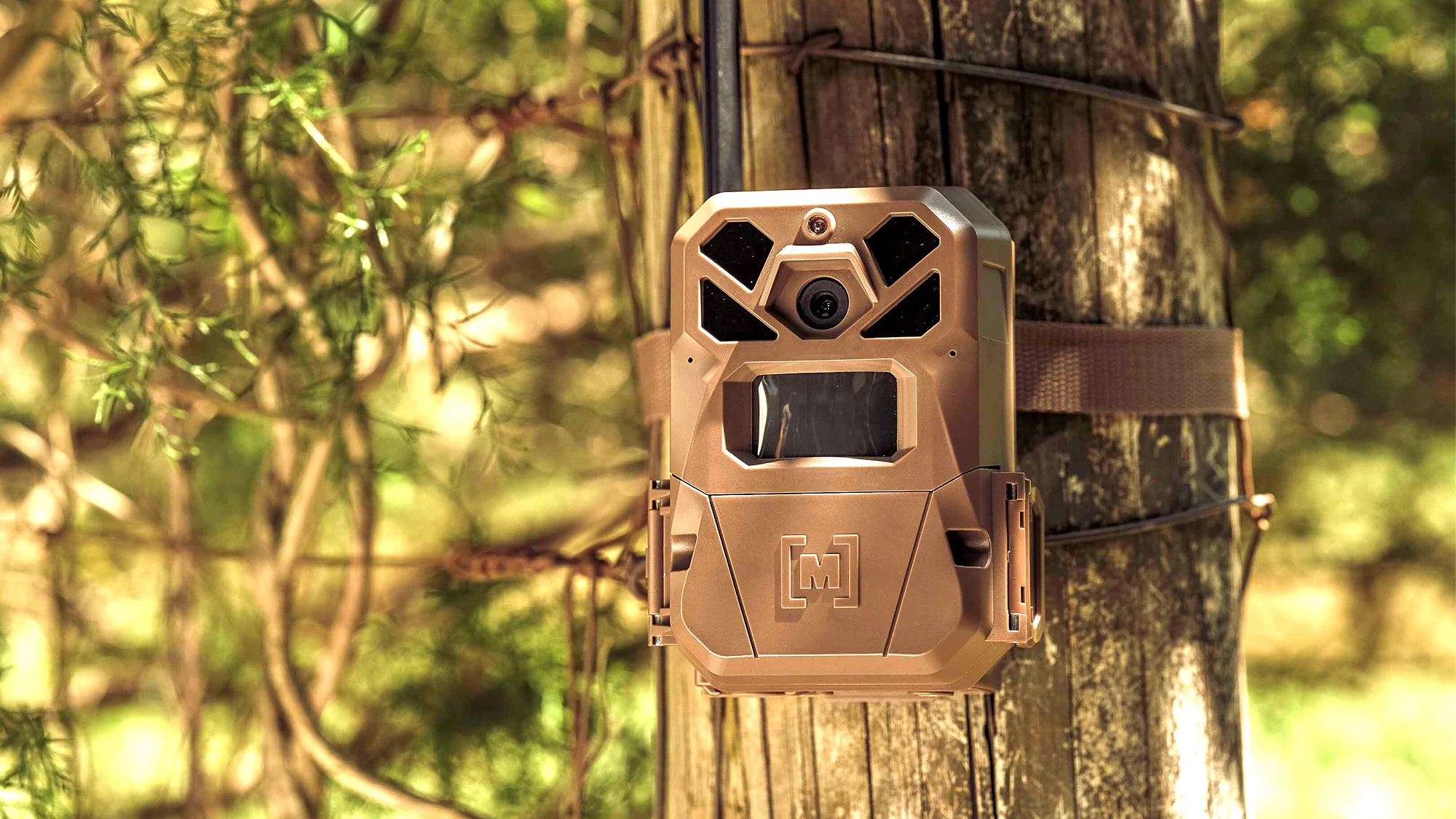
Now that the chase is on and you've got a short window to figure out where the best action is before lockdown, it's time to put your trail-cam scouting into overdrive. You can do this by either by buying a few more units and peppering the woods with little digital spies, or you can move some of the cameras you already have out—particularly those you have on scrapes, which bucks mostly ignore now—and put them in new spots better suited to this part of the rut. Or both.
Either way, the places you want to focus on now are major funnels and travel corridors connecting large swaths of ground where you'll catch big-running bucks as they range widely looking for ready does. Another good spot is doe feeding areas, but rather than hanging the camera on an entry trail, back it off and put it in time-lapse mode to watch the whole field or plot. The downwind edges of doe bedding areas are also good bets.
If there was ever a situation when a cell cam beats a conventional cam, this is it. There isn't time now to make milk runs to check cams and pull cards. A good, affordable cell cam like the Moultrie Mobile Edge 2 Pro is the way to go. Or if you're on a tight budget, you can often find great deals on the original Mobile Edge. You want set-it-and-forget-it cams that will send all the latest intel right to your phone—so you don't have to leave your tree stand.

